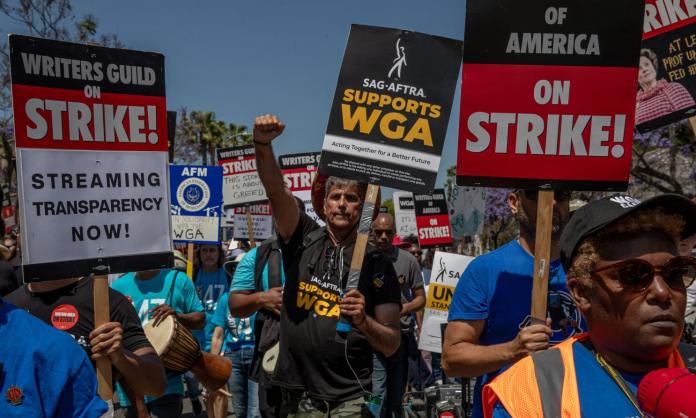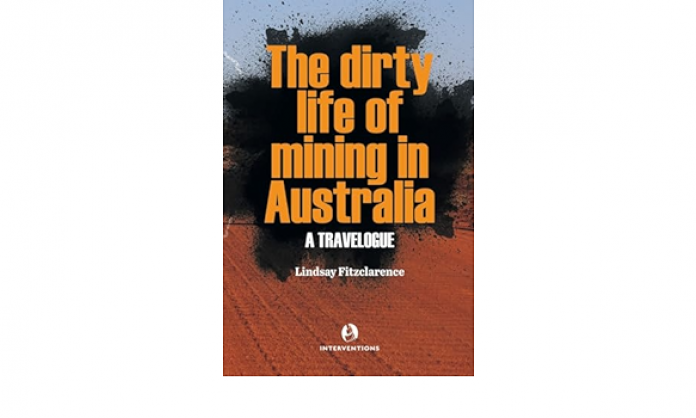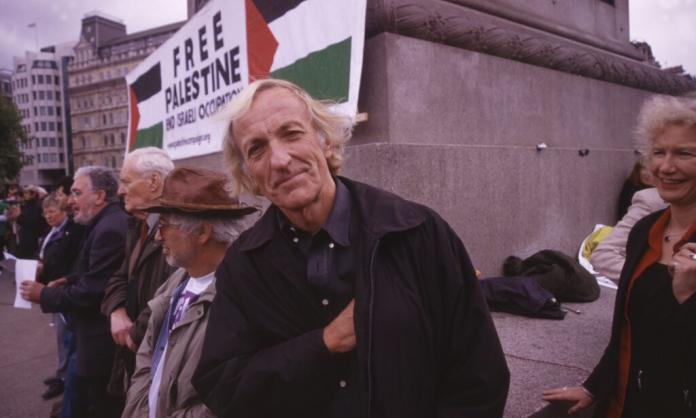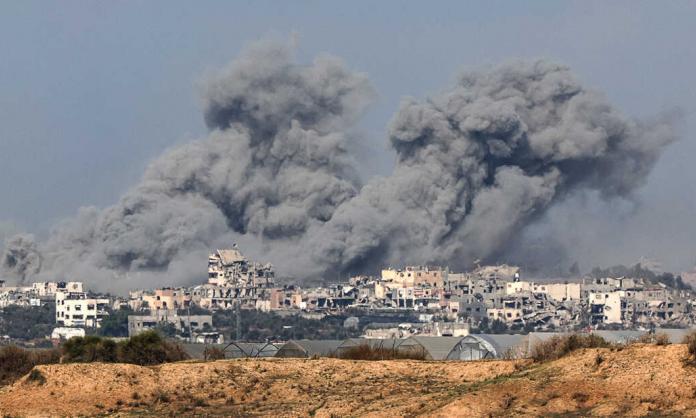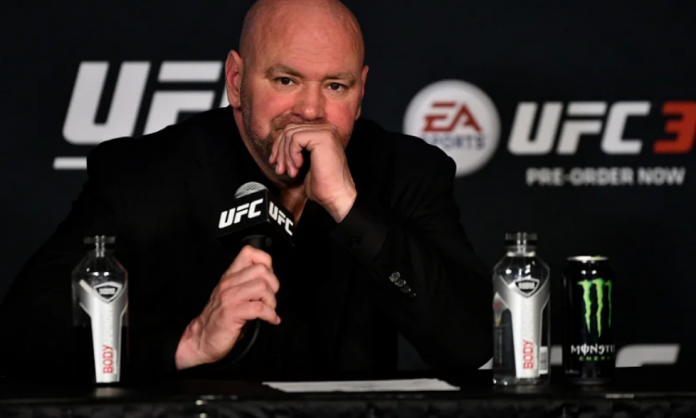“There’s a lot of ways to lose your house,” US actor Ron Perlman threatened in a video posted to Instagram earlier this month. “Some of it is just figuring out who the fuck said that and where he fucking lives.” Perlman is referring to an anonymous movie studio executive who commented that the Alliance of Motion Picture and Television Producers—the American film industry bosses’ association—plan on stonewalling negotiations with striking writers and actors until they “bleed out” and start to lose their homes.
Nearly 12,000 movie and television screenwriters from the Writers’ Guild of America (WGA) have been on strike since 2 May. They were joined by 160,000 members of the Screen Actors’ Guild (SAG-AFTRA) on 14 July. It’s the second “double strike” of writers and actors in Hollywood history, and the first since 1960.
The industry is fighting several key battles. First up is pay. While a small number of celebrity actors are paid enormous sums, the US Bureau of Labor Statistics reports that the median pay for actors in 2022 was US$27.73 an hour. Shaan Sharma, an actor and SAG-AFTRA board member, told CNN that only 12 percent of actors earn more than US$26,470 a year, the minimum necessary to qualify for the industry’s health insurance plan. According to the WGA, half of screenwriters are paid at the minimum rate of the former union agreement. Adjusting for inflation, the median pay for writers has fallen by a quarter in the last decade.
Meanwhile, Disney CEO Bob Iger takes home US$31 million per year, and Netflix’s two co-CEOs make US$78 million between them. Fran Drescher, star of The Nanny and president of SAG-AFTRA, denounced them in a fiery speech on the eve of the strike: “I cannot believe it, quite frankly, how far apart we are on so many things. How they plead poverty, that they’re losing money left and right when giving hundreds of millions of dollars to their CEOs. It is disgusting. Shame on them. They stand on the wrong side of history”.
Another crucial question is residuals: payments writers and actors receive when a movie or television show they’ve worked on is rerun or released on DVD. Due to the precarious nature of the industry, residuals are an important source of income to sustain actors and writers in between jobs. As more shows and movies have moved onto streaming platforms, where it isn’t clear how often content is replayed, residuals have plummeted. On the day the strike started, actor Kellee Stewart tweeted a screenshot showing five residual payments for her work hosted on Disney+ that amounted to just thirteen cents.
The unions are also resisting the bosses’ moves to undercut wages and conditions with artificial intelligence. While AI is not yet sophisticated enough to write a movie script all by itself (perhaps with the exception of a Marvel movie), it can be used to generate the bulk of a script that is then polished by human screenwriters for a fraction of the cost. Movie executives have also proposed to take scans of background actors’ faces and bodies, pay them for a single day’s work, and then use AI to generate new scenes in multiple productions using the scans.
Writers are demanding to ban the use of AI in scriptwriting, and to stop existing scripts being used to train AI. Actors are demanding that their likeness remain their own legal property, and that studios can only use scans with their consent and must pay them each time they are used.
The fight over AI will set an important precedent for other industries. If they win, other workers threatened with obsolescence via AI will have an example to follow in repelling the attack. But if they lose, the next battle will be even harder.
While the American labour movement has been in perilous decline for decades, actors and screenwriters have remained a bastion of strength. While just 10 percent of American workers are unionised, in Hollywood virtually all personnel involved with movie and TV production, from the directors calling “action” to the crafties serving snacks and coffee, are union members. The unions have a say in almost all aspects of production.
Industry bosses are trying to inflict a crippling blow on the unions. Their ruthlessness extends to cutting down the trees outside their studios to deprive the picket lines of shade in the searing Californian sun. Reports indicate they do not plan on negotiating until at least late October.
But the workers are determined to fight. The tenacious mood of the actors was summed up in an open letter to their union officials urging them to strike:
“This is not a moment to meet in the middle, and it’s not an exaggeration to say that the eyes of history are on all of us. We ask that you push for all the change we need and protections we deserve and make history doing it…For our union and its future, this is our moment. We hope that, on our behalf, you will meet that moment and not miss it.”
Some of the world’s biggest celebrities, from Meryl Streep to Snoop Dogg, have spoken out in support of the workers. The cast of Oppenheimer caused a sensation when they walked out of their premiere right after the strike was announced. The billionaire studio executives are almost universally regarded as villains. Whatever the outcome, striking workers are fast becoming Hollywood’s leading stars of 2023.




